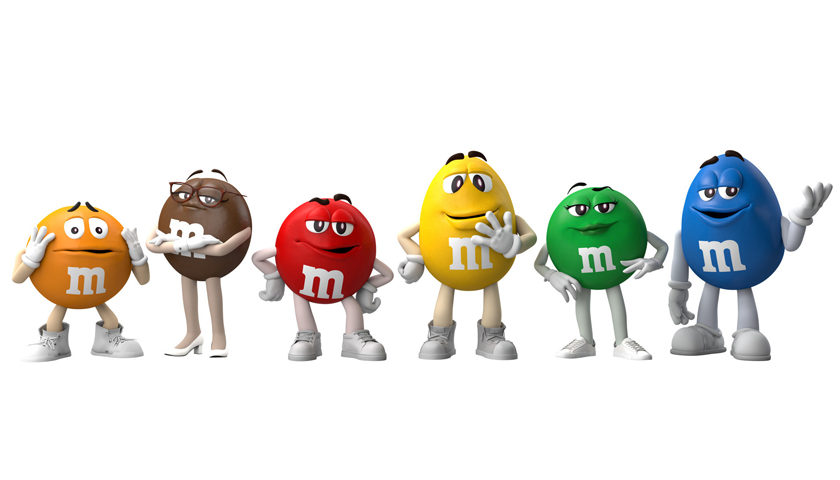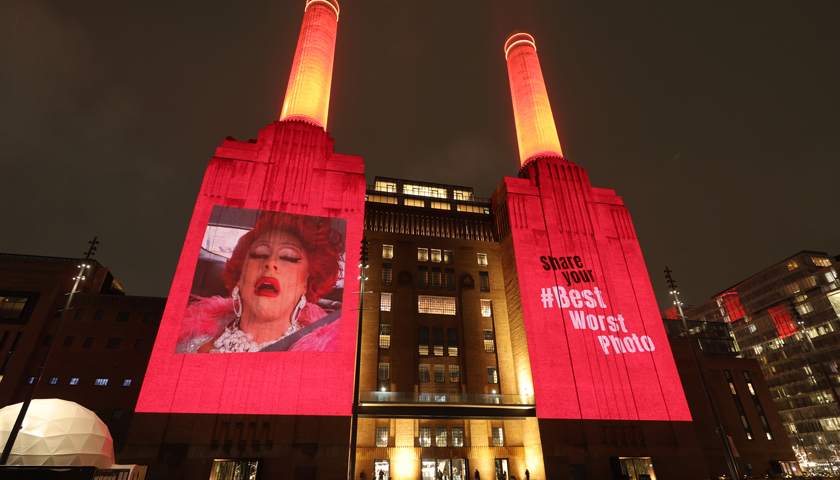Millions of young Brits feel misrepresented in movies with 43% admitting they can’t relate in any way to the characters they see on the big screen, according to a new study released today.
The research shows that over half of under 35-year-olds (57%) think stereotypes are offensive and overused in films, with 30% going as far as to say they have been offended by a movie cliché.
The study of 2,000 Brits aged 18 – 35, commissioned by confectionary brand M&M’S as part of its global ‘FUNd’ initiative designed to champion diversity and inclusion, reveals 29% of respondents have refused to watch a film due to an offensive or outdated stereotype.
Oversexualised women is the stereotype young adults feel they see too much of in movies, followed by females being depicted as weak or too sensitive, and foreign characters’ broken English being used for comedy.
Black/Latino people portrayed as gang members; black communities being broken or ‘disruptive’; and ‘flamboyant’ members of the LGBTQ+ community were also cited as outdated tropes.
Top ten over-used stereotypes that young Brits aged 18-35 would like to see cut from movies:
- Women being overly sexualised for male characters
- Women being depicted as weak, ‘too sensitive,’ and/or always crying
- Foreign characters unable to speak English for comedic purposes
- Mentally ill people appearing as ‘dangerous and unpredictable’
- Black communities being viewed as ‘broken/disruptive’
- Black/Latino men and women as gang members
- ‘Flamboyant’ members of the LGBTQ+ community
- The streetwise ‘sassy’ black woman
- ‘Overprotective’ Asian parents
- Disabled people appearing ‘frail’, ‘helpless’, and/or ‘unintelligent’
Whilst Hollywood has made steps to correct inaccurate portrayals of minority groups and negative stereotypes, 49% of those surveyed feel the movie industry still has a long way to go.
The research was inspired by the core values of the M&M’S FUNd, and revealed the character roles and industry change people would like to see more of to increase a sense of belonging in the world.
Young adults would like to see more depictions of neurodivergent people living normal lives, rather than portrayed as having ‘special powers’; more people of colour playing people in management positions; and disabled characters portrayed as strong or successful.
This was followed by wanting to see more disabled character roles played by disabled people. With many disabled characters on screen played by able bodied actors, over half of those surveyed (59%) feel this needs to change.
Top ten characters and attitudes young Brits would like to see:
- Neurodivergent people living normal lives with normal jobs
- Character roles with disabilities played by disabled people
- Successful and strong disabled people
- Positive portrayals of minorities
- People with physical or mental disabilities in action roles
- Black people in management positions
- Stay at home dads
- Disabled leads in romantic roles
- Black people in period dramas
- Neurodivergent detectives and/or crime busters
The study found comedies, romance and crime are considered the worst genres for overusing stereotypes, with 37% of participants claiming they have never watched a movie within these genres that did the opposite and broke stereotypes down.
More than half (56%) believe the film industry needs to stop alluding to things such as race, sexuality or religion when it is irrelevant to the movie’s storyline.
According to the research, only one in five (21%) Brits could name five or more disabled actors, and only a quarter (24%) could name five or more LGBTQ+ actors. And looking behind the lens, only 22% said they could confidently name five non-white Hollywood directors.
The lack of diversity behind the camera is seen to be detrimental to the development and progress of cinema, with over half (60%) of young Brits agreeing that increased diversity in directing, producing and technical roles would positively impact what we see on screen.
In 2021, only three in 10 (30%) of directors were from minority backgrounds, up from 12% in 2011*.
However, 31% of young Brits think the industry’s attempts to improve inclusivity and diversity feels more like a ‘box-ticking’ exercise than authentic.
Half of those polled (52%) believe that Hollywood and the western film industry has a greater responsibility than all other industries to improve its diversity and inclusivity.
Following the research, M&M’S is working with London Film School to identify the films that the younger generations would like to see made by Hollywood, which challenge stereotypes and positively represent minority groups.
The organisations are calling on the public, via Twitter, to submit the #FilmsYouWantToSee – a selection of which will be bought to life as film trailers by young emerging directors.
Leah Dykes, Brand Director Bitesize, M&M’S said; “We’re delighted to be working with the London Film School, amongst others, on this important piece of work. As a treat synonymous with film culture, we feel we have a duty to do what we can to ensure the industry and beyond is inclusive and diverse, and celebrates talent from all walks of life.
This work is one of the first steps in the UK, in our commitment to increase a sense of belonging for 10 million people around the world, by 2025 and sets out to understand thoughts and attitudes towards diversity and inclusion in Hollywood and western cinema, the issues around typecasting and old stereotypical tropes.”
Femi Kolade, Head of Studies at London Film School, which is part of the initiative, said: “The mainstream film industry has been dominated for too long by a narrative that excludes so many people’s lived experiences and reduces all of our specific and vibrant diversity to a few standardised, often negative and always limited representations of who we are today, who were yesterday and who we’ll become in the future. This must change, and this timely research from M&M’S and this important campaign shows yet again how desperate mainstream audiences are to see that change.”
The campaign is part of M&M’S purpose and commitment to the ‘FUNd’, designed to champion diversity and inclusion and bring people together. Launched in January 2022, The M&M’S FUNd offers resources, mentorship, opportunities and financial support to connect people.
New research uncovers the attitudes of under 35s on diversity and inclusion within cinema
- Over half of under 35s (52%) believe that the film industry has a greater responsibility than any other industry to improve its diversity and inclusivity, with 43% admitting they can’t relate in any way to the characters they see on the big screen
- 29% of young Brits have refused to watch a film due to a negative portrayal of a minority group or outdated stereotype
- The report reveals the top ten on screen stereotypes that young Brits want to see removed including, oversexualised women, women being depicted as weak or too sensitive, and foreign characters being unable to speak English for comedic purposes
- Research commissioned by confectionery brand M&M’S, as part of its global ‘M&M’S FUNd’ initiative, was designed to champion a sense of belonging for all in the arts and entertainment space
- In response to the results of the research M&M’S has worked with London Film School and several comedians on Twitter to identify the #FilmsYouWantToSee that will use humour to challenge stereotypes and positively represent minority groups
- This work is one of the first steps in the UK, in M&M’S’ commitment to increase a sense of belonging for 10 million people around the world, raising the profile of the issues in the film industry
- M&M’S is committed to bringing people together and being champions of inclusion, Mars became a partner of Geena Davis Institute (GDI) on Gender in the Media in 2018 to help the business measure representation and address bias in its marketing



